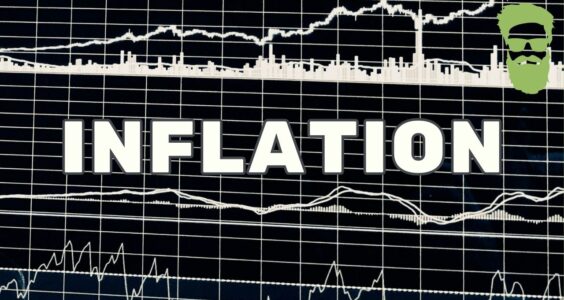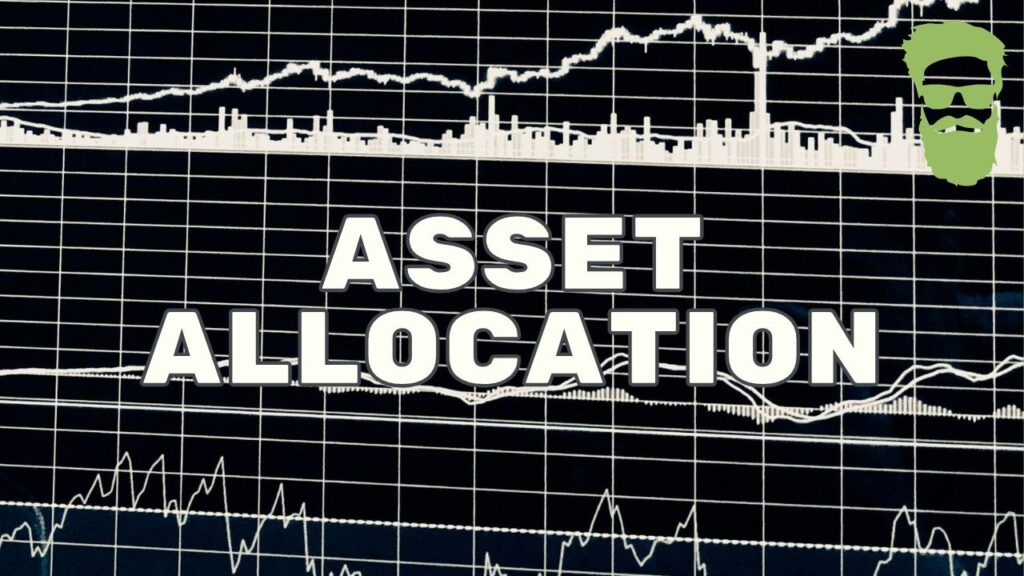As the cost of living in Canada continues to rise, consumer purchasing power decreases. The average cost of groceries in the last 10 years has increased more than 20%. If you want to keep up with the rising cost of living and eventually enjoy a financially secure retirement, you need to ensure that your money is growing at a higher rate than inflation.
Long-term investors should be mindful when investing in low-returning conservative investment vehicles such as Guaranteed Investment Certificates (GICs), bonds, and cash equivalents as there is risk that inflation can significantly erode returns. Inflation poses a risk so investors must protect their capital through equity-based investments.
What is Inflation?
Inflation is a generalized, sustained trend of rising prices. It is measured as the percentage change in a basket of goods and services that are typically consumed by households, such as food, housing, clothing, transportation, and medical care. Inflation results from a combination of factors, including an increase in the demand for goods and services relative to the supply of those goods and services, an increase in the cost of production, and changes in monetary policy. When the demand for goods and services rises faster than the supply, prices will tend to increase. If the cost of production also rises, this can also contribute to inflation. And, when a central bank increases the money supply, this can lead to a decrease in the value of money and higher prices.
Inflation can have a significant impact on an economy and the standard of living of its citizens. A moderate rate of inflation can be good for an economy, as it can encourage growth and investment. However, high inflation can cause economic instability, reduce purchasing power, and erode the value of savings and investments. It is important for central banks, governments, and individuals to monitor inflation and take actions to control it if necessary. For example, a central bank might raise interest rates to slow down the economy and reduce demand, while a government might take steps to increase the supply of goods and services in order to control inflation.
What Causes Inflation?
Inflation, the continued increase of the cost of goods and services, is an important consideration when you’re making financial decisions, because even low inflation rates can eat away at your savings. An increase in the money supply is the fundamental cause of inflation, though it can manifest in various ways in the economy. Other causes of inflation include supply bottlenecks and shortages of key goods, which can drive prices up. Monetary authorities can increase a country’s money supply by:
- Printing and distributing more money to citizens
- Devaluing the legal tender currency
- Creating new money as reserve account credits through the banking system by purchasing government bonds from banks on the secondary market
How Does Inflation Work?
Inflation reduces money’s purchasing power, affecting individual sectors or the entire economy. The expectation of inflation can further sustain this devaluation, leading workers to demand higher wages and businesses to charge higher prices, reinforcing the cycle of rising prices. Inflation can be classified into three types: demand-pull inflation, cost-push inflation, and built-in inflation.
Types of Inflation
- Demand-Pull Inflation: Occurs when an increase in the money supply and credit boosts demand for goods and services faster than the economy can produce them. This demand-supply gap leads to higher prices as consumer spending increases.
- Cost-Push Inflation: Happens when production costs rise, causing businesses to increase prices to maintain profit margins. This often occurs when there’s a negative economic shock to the supply of key commodities, leading to higher costs for finished products and consumer prices.
- Built-In Inflation: Arises from adaptive expectations, where people expect current inflation rates to continue. As prices rise, workers demand higher wages to keep up, causing a wage-price spiral where increased wages lead to higher costs of goods and services.
How Inflation Impacts Consumers
Inflation affects the cost of living by making goods and services more expensive, reducing the purchasing power of money. This impact is measured using price indexes like the Consumer Price Index (CPI), which tracks the average price changes of a basket of goods and services over time. Sustained inflation can slow economic growth, as the cost of living increases and consumer spending power diminishes.
How to Protect Your Finances During Inflation
Individuals can protect their finances by investing in asset classes that outperform during inflationary periods, such as commodities, real estate, and Treasury Inflation-Protected Securities (TIPS). These investments can help hedge against the declining purchasing power of money.
Types of Price Indexes
- Consumer Price Index (CPI): Measures the average price changes of a basket of consumer goods and services. It reflects retail prices and is a key indicator of inflation or deflation.
- Wholesale Price Index (WPI): Tracks price changes at the wholesale level before goods reach the retail market. It includes prices of raw materials and intermediate goods.
- Producer Price Index (PPI): Measures the average change in selling prices received by domestic producers. It reflects price changes from the seller’s perspective, unlike the CPI, which reflects the buyer’s perspective.
How Inflation Can Be Controlled
Central banks and financial regulators manage inflation through monetary policy, aiming to maintain price stability, moderate interest rates, and maximize employment. For instance, the U.S. Federal Reserve targets a 2% annual inflation rate to promote economic stability. Inflation can increase the resale value of assets and encourage spending, which boosts economic activity. It can also benefit borrowers by reducing the real value of their debts over time. Inflation erodes the purchasing power of savings and can increase the cost of living. It can introduce uncertainty into the economy and distort relative prices, wages, and rates of return.
Hyperinflation
Hyperinflation occurs when inflation rates exceed 50% per month. It is typically caused by rapid increases in the money supply and can lead to severe economic instability.
Hedging Against Inflation
Investors can protect against inflation by investing in assets like stocks, commodities, real estate, and inflation-indexed securities such as TIPS. These investments tend to perform well during inflationary periods and can help preserve purchasing power.
Conclusion
Inflation, a rise in prices resulting in decreased purchasing power, is a natural economic phenomenon. While moderate inflation can stimulate economic activity, excessive inflation can harm the economy and erode the value of money. Governments and central banks use monetary policy to manage inflation and maintain economic stability.




